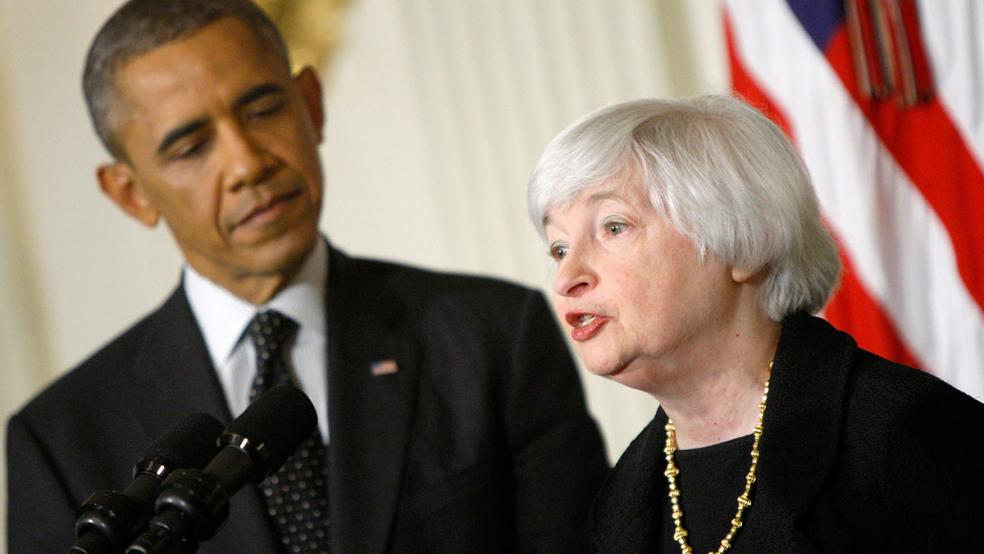The problem with losing the public’s trust is that suspicion then attaches to your every move. Today, it is increasingly tempting to ascribe everything President Obama does to political calculation. Moreover, a growing number of our institutions of government have become tainted. The IRS, the Justice Department, the Census Bureau – all have been accused of questionable activities.
A recent poll showed that 61 percent of the country doesn’t trust our Commander in Chief. According to the survey, commissioned by Fox News and conducted by Anderson Robbins Research and Shaw & Company Research, some 37 percent of Americans thinks the president lies to them “most of the time” on important matters; another 24 percent thinks President Obama lies some of the time.
Related: Obama’s Health Care Promise Named Lie of the Year
Obama has earned this skepticism. The tipping point for most Americans was doubtless the oft-repeated claims from the president that people could keep their insurance programs, and their doctors, if they liked them – promises that not only proved false, but that the administration knew would prove false.
The president is also tarred by a series of unnerving events that call not only his own credibility into question, but that of our government agencies. The targeting of right-wing groups by the IRS is indeed a scandal. The Census Bureau has been accused of fiddling with healthcare information to benefit Obamacare scorekeepers.
Even the Congressional Budget Office, our supposedly non-partisan bean counters, has raised suspicions. When the CBO reported its first projections of Obamacare costs – numbers that didn’t match those sunny estimates being hawked by the president, CBO head Doug Elmendorf was summoned to the Oval Office for a confab. CBO quickly published new, more positive statistics. One wonders.
Can the Fed hold its ground? Decisions about interest rates could well decide the November elections. Even the suggestion of future higher interest rates from Fed Chair Janet Yellen a month ago led to a sharp market sell-off. If Yellen were to signal a more aggressive winding down of the Fed’s quantitative easing, the stock market could nosedive, damping confidence and growth. The White House would not be happy.
Related: Here’s What Janet Yellen Really Said About Rate Hikes
The prospect of higher rates could further slow the housing recovery, which quickly lost steam when mortgage terms rose last year. Housing starts in March were down almost 6 percent from last year, and mortgage applications trail 2013 levels as well. Economists have generally expected an acceleration in the second half of this year, relying partly on further gains in home building. Weakness in the sector could lead to a fifth year of unmet expectations.
As important, the prospect of higher interest rates could return voter focus to the nation’s budget deficit and record debt. Interest on the federal debt has been kept in check by uber-low borrowing costs, which will ramp up sharply when rates move higher. Though federal budget deficits (projected at $492 billion this year down from $680 billion last year) have been declining, the better fiscal picture will prove short-lived.
The CBO projects rising deficits post-2015 and that gross federal debt will rise from just under $18 trillion at the end of this year to $27.2 trillion by year-end 2024. As a consequence of rising debt and higher (more normal) interest rates, net interest paid by the feds will soar from $227 billion to $876 billion, absorbing a decade hence more than 3 percent of GDP, more than half the outlay for Social Security. Bottom line: the enormity of the fiscal hole we are digging will quickly become apparent when rates start to move higher.
Slowing growth, stalled housing, and renewed focus on the national debt – a nightmare scenario for campaigning Democrats already under siege due to Obamacare. Does anyone not think the White House has weighed in on how Yellen should proceed?
Related: Why Obamacare Remains a Burden for Democrats
When the move might prove so damaging, why might the Fed consider raising rates sooner than expected? Because there are clear signs that extra low rates are distorting risk pricing and causing a massive increase in borrowing – developments that could lead to another financial crash.
Private sector debt is at an all-time high. Nonfinancial debt as a percent of GDP stands at 55 percent -- substantially above the level reached before the financial crisis. Also, premiums on high-risk instruments have collapsed. Junk bond issuance has soared to a record $336 billion. Another symptom: issuance of 38 covenant-lite loans (remember those?) in the first quarter hit a new record.
Despite these trends, last week Yellen told Congress that rates would stay “very low” until there was further improvement in the job market – a somewhat more dovish stance than she took a month earlier. Presumably, her judgment stems from her economic outlook, and is immune to White House self-interest. We know that she was not the Obama team’s first pick to be Fed Chair -- promising a goodly level of independence.
Let us hope that her management of our monetary policy continues to be guided by unemployment concerns weighed against signs of a possible new bubble forming in the debt markets, and not by the election calendar. Stay tuned.
Top Reads from The Fiscal Times:






